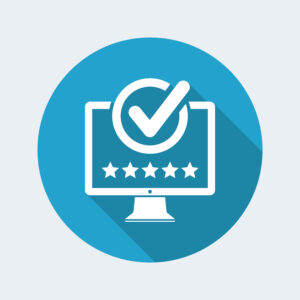
On May 10, 2023, Governor Ron DeSantis signed SB 1718 into law. This statute will require private employers with at least 25 employees to use E-Verify, the digital immigration verification tool, during their onboarding process. Currently, only public employers and private employers contracting with state and local governments or receiving state incentive dollars are required to use E-Verify system. The new statute expands this requirement to all private employers with at least 25 employees. The new law will take effect on July 1, 2023.
E-Verify is an internet-based system operated by the U.S. Department of Homeland Security (DHS) that compares information from employees’ Form I-9, Employment Eligibility Verification, to records available to the DHS and Social Security Administration (SSA) to confirm that employees are authorized to work in the United States. Employers that want to enroll in E-Verify can do so by visiting the official website.
Noncompliance is subject to increased penalties.
Beginning on July 1, 2023, if the Department of Economic Opportunity determines that an employer failed to use the E-Verify system to verify the employment eligibility of employees as required under this section, the department must notify the employer of the department’s determination of noncompliance and provide the employer with 30 days to cure the noncompliance. If the Department of Economic Opportunity determines that an employer failed to use the E-Verify system as required under this section three times in any 24-month period, the department must impose a fine of $1,000 per day until the employer provides sufficient proof to the department that the noncompliance is cured. Noncompliance constitutes grounds for the suspension of all licenses issues by a licensing agency subject to chapter 120 until the noncompliance is cured.
Why E-Verify?
It is unlawful for any person to knowingly employ, hire, recruit, or refer an individual who is not duly authorized to work by the immigration law of the United States. Notably, if employers use the E-Verify system in good faith, whether use is mandatory or voluntary, the government will presume they have not knowingly hired unauthorized workers.
StraightforWARD Legal Advice:
Employers should be prepared to comply with the adoption of these new requirements and uses of the E-Verify system in Florida. Employers who are impacted must make the necessary changes in their hiring processes and carefully scrutinize their internal practices at both the state and federal level to ensure compliance. They can also reach out to their labor and employment counsel for auditing of their record-keeping procedures and best practices for compliance with the E-Verify requirements. Failure to comply with the law can result in enhanced penalties or even suspension or termination of business licenses. Employers may also face state and federal charges for knowingly employ undocumented individuals.
Employers with questions about corporate compliance and employment litigation in Florida should contact Jeremy Rogers at (813) 558-3387 or jrogers@thewardlaw.com.
